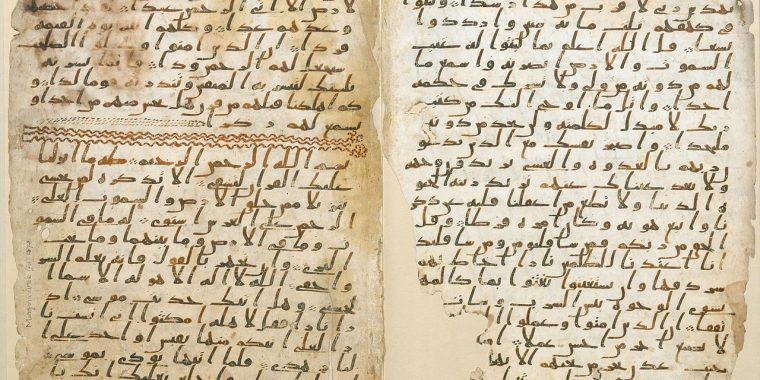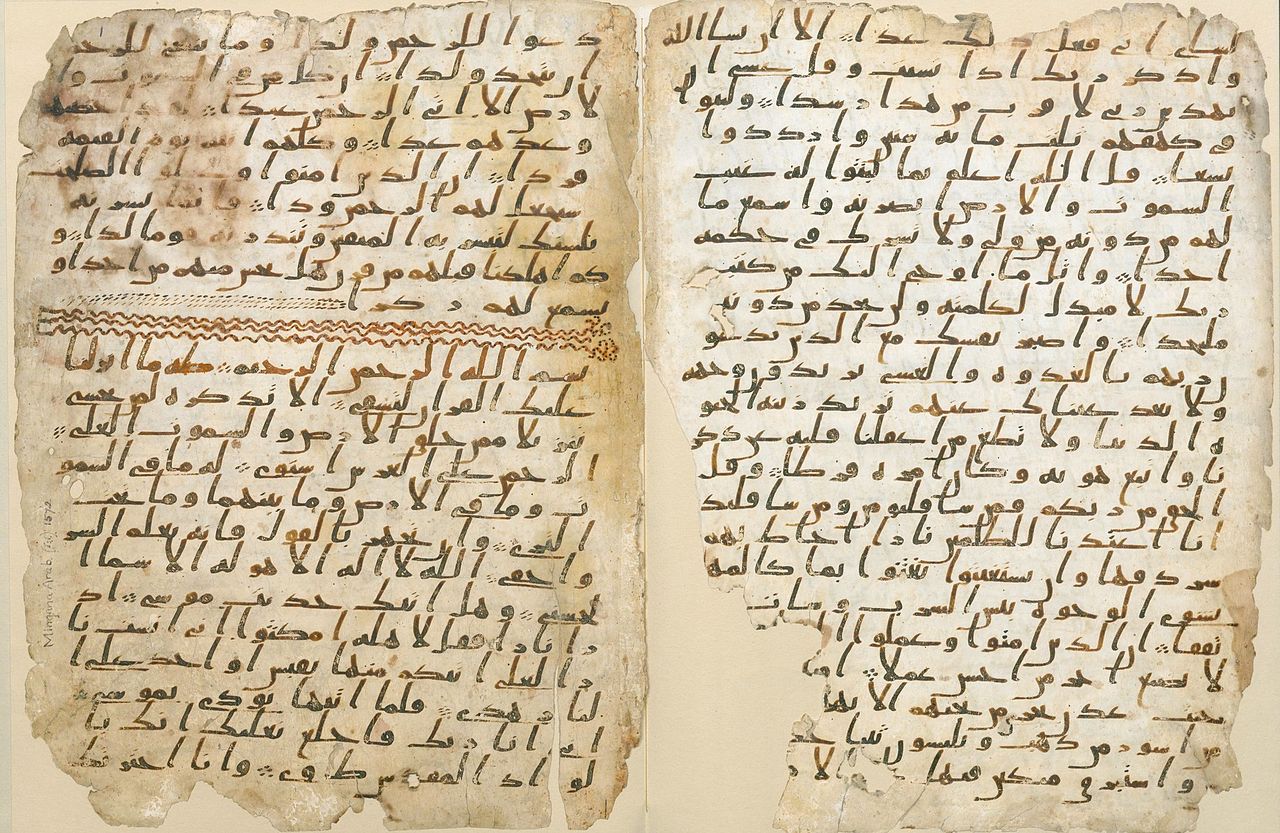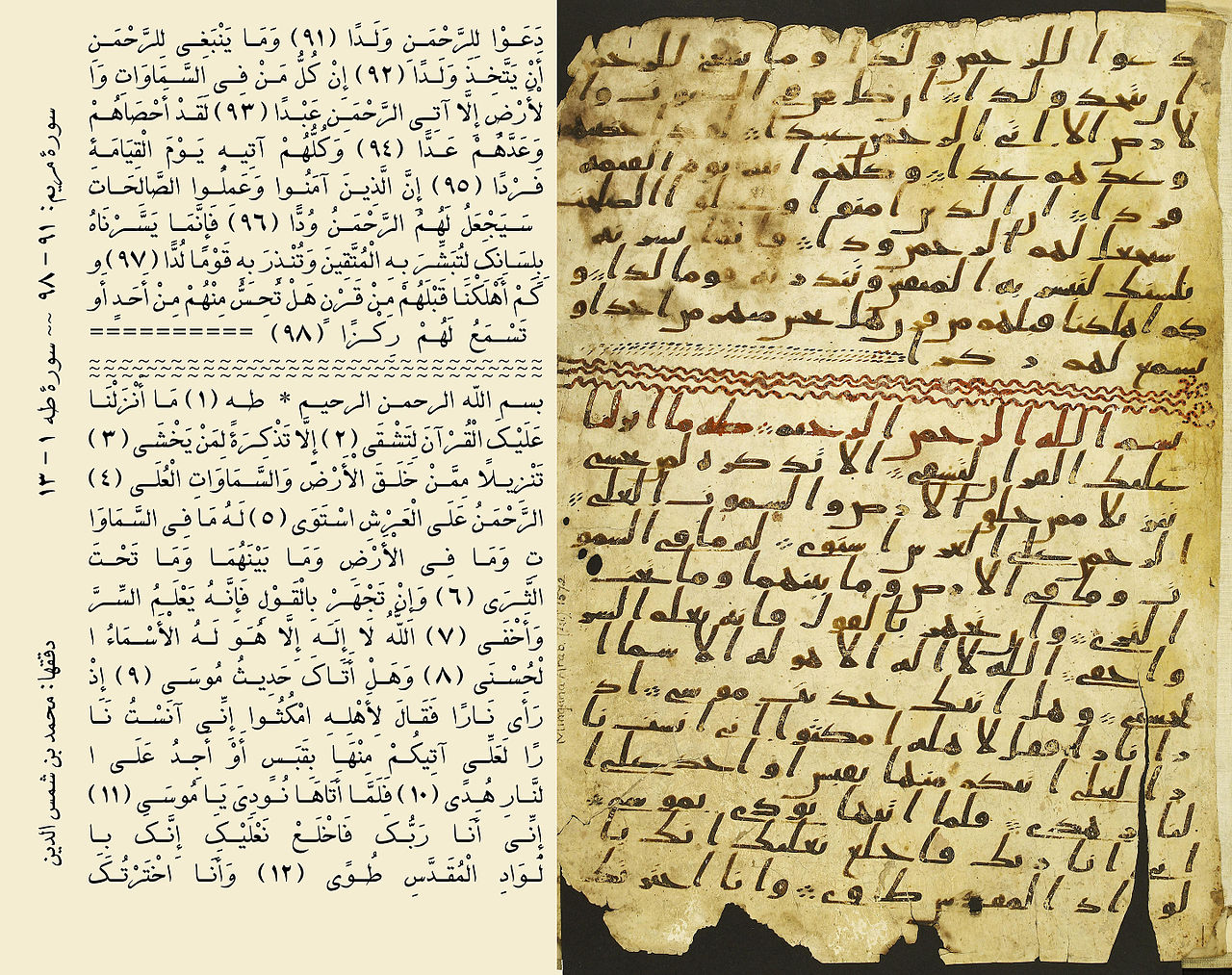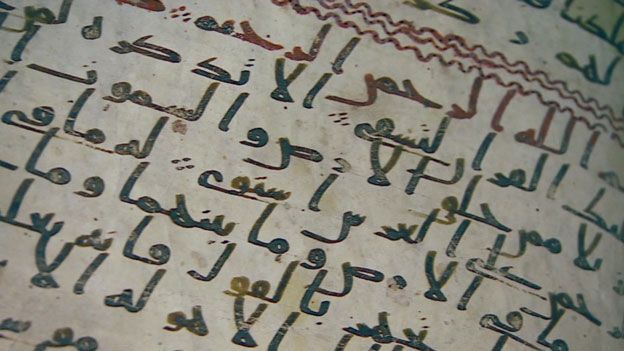
At University of Birmingham, scientists recently dated an old Quranic manuscript with the help of radiocarbon analysis. As it turns out, this particular manuscript is one of the oldest ones ever! Written on a parchment, it dates back to sometime between 568 and 645 CE.
Since Prophet Muhammad (PBUH) himself lived from 570 to 632 CE, it means this Quranic manuscript belongs to the Prophet’s lifetime. It is, as such, quite possible that Quranic verses were written on the parchment by a Companion of the Prophet, or maybe by a student of one such companion. The calligraphy and lettering on the parchment is in excellent condition, thereby proving it to be the work of an experienced hand.
So, what does this “newly discovered” old Quranic manuscript tell us?
The “Earliest” Manuscript of The Quran
The Manuscript: At A Glance
The two leaves of the manuscript are written in ink, on parchment, using clearly legible Arabic Hijazi script. The leaves contain parts of Surahs 18 to 20.
Since the manuscript was probably meant for native Arabic speakers and readers, there are no special diacritical marks for vowels, but consonants are marked by oblique dashes.
You can read more about it on the University of Birmingham website, or watch the video below:
There are a lot many messages that this old parchment of Quranic letters has conveyed to us.
1. The Islamophobes are Wrong
Time and again, Islamophobes keep falsely accusing Islam: they claim that Quran originated from a period after Prophet Muhammad (PBUH), and at times, they go as far as saying that the Quran is no longer the same as it once were!
Such ridiculous accusations are obviously false, and this new discovery at Birmingham University is a big slap to the face of Islamophobes around the world.

2. The Quran is Untouched
Quite obviously, since this manuscript belongs to a time when the Quranic Revelation was still ongoing (that is, the lifetime of the Prophet Muhammad PBUH), it is again proven beyond doubt that Quran’s authenticity is unquestionable.
Of course, we as Muslims have known it since day one. But for anyone with even an ounce of doubt: feel free to compare this new-found manuscript, or the 7th century Quranic parchment found in Sana’a, or the 800-something CE Quranic manuscript of Samarqand, with the present-day version of the Quran.

Yes, the Quran is untouched and unedited.
3. The Concept of Memorization
For centuries, Islamic scholars have understood and utilized the power of the human brain. Back in the day, the luxury of making backup copies of one’s valuable data across multiple hard drives and cloud storage was not available. Thus, to preserve the Quran and other important knowledge, Islamic scholars turned towards the only unlimited storage option that they were aware of — the human brain.
Memorizing the Quran has been a separate branch of study in its own right, and for centuries, Islamic scholars have memorized the full text of the Quran, word to word, syllable to syllable.
Of course, present-day education system focuses more on external technology rather than human memory, such as the use of calculators and computers. Yet, the power of memorization has played a big role in the preservation of the Quran down the ages.

4. Our Heritage Rests With Non-Muslims
The question that should now arise is: what is such a precious and old manuscript of the Quran doing in Birmingham? Agreed, the Quran is available all throughout the world, and is a message for all of humanity rather than just a bunch of Muslims, but why is it so that Islamic heritage today is being curated by non-Muslims?
Have we, as a community and civilization, become so lazy on the intellectual front that we cannot take care of our own heritage?
I do not think anyone has a direct answer to that. In any case, in whatever part of the world it might be, the authenticity of the Quran remains guaranteed. As Allah said in the Quran 15:09 (Surah al-Hijr):
Indeed, it is We who sent down the Quran and indeed, We will be its Guardian.
All images (C) University of Birmingham | First published at Muslim Memo